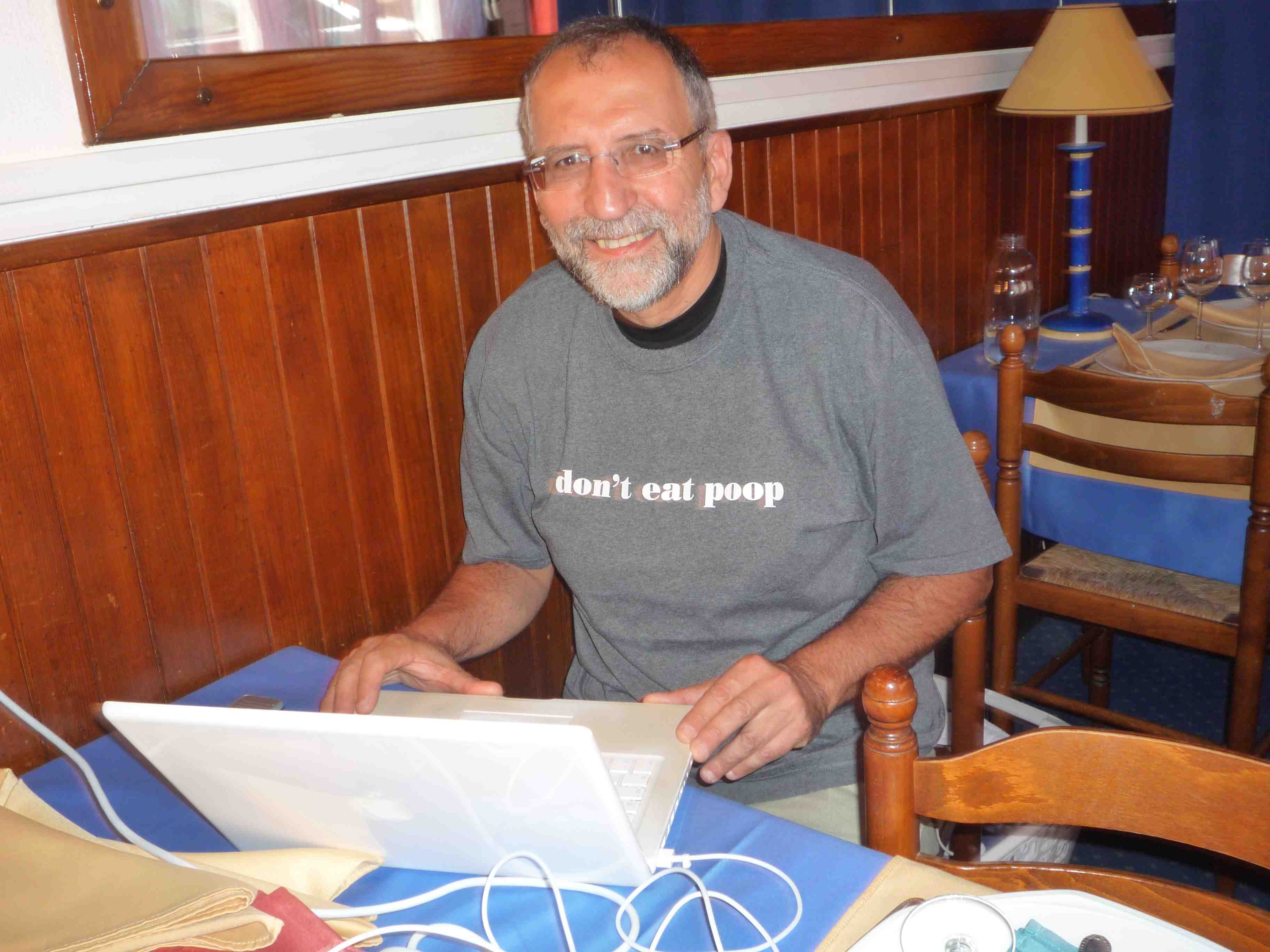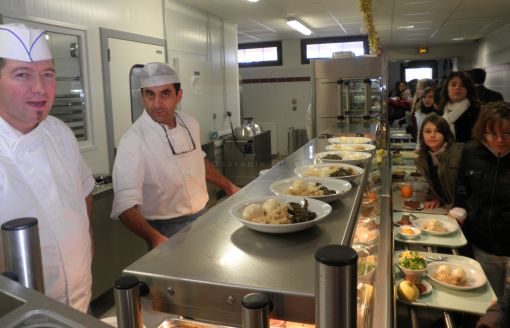There are now over 100 sick with salmonella in France linked to hamburgers, primarily school kids, so as in the U.S., questions are being raised about food safety standards and procedures for products purchased by the school lunch program. After a USA Today expose  last year, the U.S. asked microbiologist Gary Acuff to lead a panel to review and improve school lunch purchases.
last year, the U.S. asked microbiologist Gary Acuff to lead a panel to review and improve school lunch purchases.
My friend, Albert Amgar, wrote a particularly incisive blog post about the culture of food safety secrecy in France. Amy translated and excerpts follow:
The food poisoning outbreak caused by Salmonella in ground beef patties has raised many questions.
Of course, communication has been, as usual, opaque, but now the school cafeteria’s contract for the hamburgers is itself classified top secret, according to a Nov. 6 article by Emmanuel Coupaye of Centre Presse.fr, the newspaper for Vienne.
This journalist is asking questions: What are the established purchasing criteria for ground meat in the middle schools and high schools? After contamination, the question is disturbing.
Apart from the contamination of hamburgers with salmonella, "What is more upsetting is the National Education’s current difficulty in providing accurate information about the selection of products offered in school cafeterias. Since Thursday (November 4 – aa), we’ve been looking for an answer to a simple question: What are the selected criteria used in sourcing ground meat for Poitiers’ middle schools and high schools? Many parents as well as cattle farmers were surprised to learn that the meat for the hamburger patties was supplied by a foreign producer."
On Thursday, the manager of the high school, contacted by our editorial staff saw no problem with providing us a copy of the contract. We only had to come by the school yesterday morning (Friday, Nov. 5). Our goal was to know what are the established criteria for sourcing ground meat (French, EU or other) and the quality threshold (dairy breed, meat breed, meat with a seal of quality). But then, yesterday morning, after a night of reflection, the answer was no.
"I cannot give you this document," stated the school principal.
By late afternoon, the rector stated that he "did not have any information to add." Too bad the Ministry of Education’s website still boasts, under the catering section, its dual requirement "to maintain nutritional quality" and "better inform parents” (especially on issues related to food safety – aa).
In conclusion, the only thing left for us to do is to seize it through the Committee on Access to Administrative Documents!
I wish a lot of fun to those who would like to access these documents. Indeed, in France, transparency is often emphasized, but as pointed out in a recent book (Corinne Maier, Chao France, Flammarion, 2010) glasnost is  not a French word. By comparison, the U.S. Congress passed a law on the freedom of information that requires the administration to establish clear standards to determine what documents can be classified as confidential, secret or top-secret, allowing citizens the right to challenge these classifications in court.
not a French word. By comparison, the U.S. Congress passed a law on the freedom of information that requires the administration to establish clear standards to determine what documents can be classified as confidential, secret or top-secret, allowing citizens the right to challenge these classifications in court.
To be continued …
 Health Authorities that symptoms such as stomach ache, nausea, vomiting were diagnosed among around 15 people taking part in a rugby match cocktail party.
Health Authorities that symptoms such as stomach ache, nausea, vomiting were diagnosed among around 15 people taking part in a rugby match cocktail party.  identified. This outbreak stresses the importance of respecting hygiene measures in collective catering and defining first management measures as soon as the results of the investigation are known.
identified. This outbreak stresses the importance of respecting hygiene measures in collective catering and defining first management measures as soon as the results of the investigation are known.

 there is no better way to deworm the birds. He said was advised to do so, but would not name the specialist who gave the advice.
there is no better way to deworm the birds. He said was advised to do so, but would not name the specialist who gave the advice.
.jpeg) company into different school cafeterias in France.
company into different school cafeterias in France.  19 and 22, 2010, after eating
19 and 22, 2010, after eating  last year
last year not a French word. By comparison, the U.S. Congress passed a law on the freedom of information that requires the administration to establish clear standards to determine what documents can be classified as confidential, secret or top-secret, allowing citizens the right to challenge these classifications in court.
not a French word. By comparison, the U.S. Congress passed a law on the freedom of information that requires the administration to establish clear standards to determine what documents can be classified as confidential, secret or top-secret, allowing citizens the right to challenge these classifications in court..jpeg) The source of original contamination has not been uncovered.
The source of original contamination has not been uncovered. The distributor that provided the contaminated burgers was asked to recall and destroy the entire lot without delay. The meat was apparently imported.
The distributor that provided the contaminated burgers was asked to recall and destroy the entire lot without delay. The meat was apparently imported. The frozen hamburger patties, sold in Carrefour, Carrefour Market, Carrefour City and Carrefour Contact, have a sanitation stamp IE 565 EC
The frozen hamburger patties, sold in Carrefour, Carrefour Market, Carrefour City and Carrefour Contact, have a sanitation stamp IE 565 EC.jpg) had non-bloody diarrhea for 3 days and abdominal pain. Questioning of the patients’ parents identified no recent history of travel, contact with farm animals, or outdoor bathing. A food history indicated that the 2 patients had shared an undercooked ground beef burger 4–5 days before symptom onset. The patients’ parents also ate burgers from the same package (box); they did not report any gastrointestinal symptoms.
had non-bloody diarrhea for 3 days and abdominal pain. Questioning of the patients’ parents identified no recent history of travel, contact with farm animals, or outdoor bathing. A food history indicated that the 2 patients had shared an undercooked ground beef burger 4–5 days before symptom onset. The patients’ parents also ate burgers from the same package (box); they did not report any gastrointestinal symptoms.